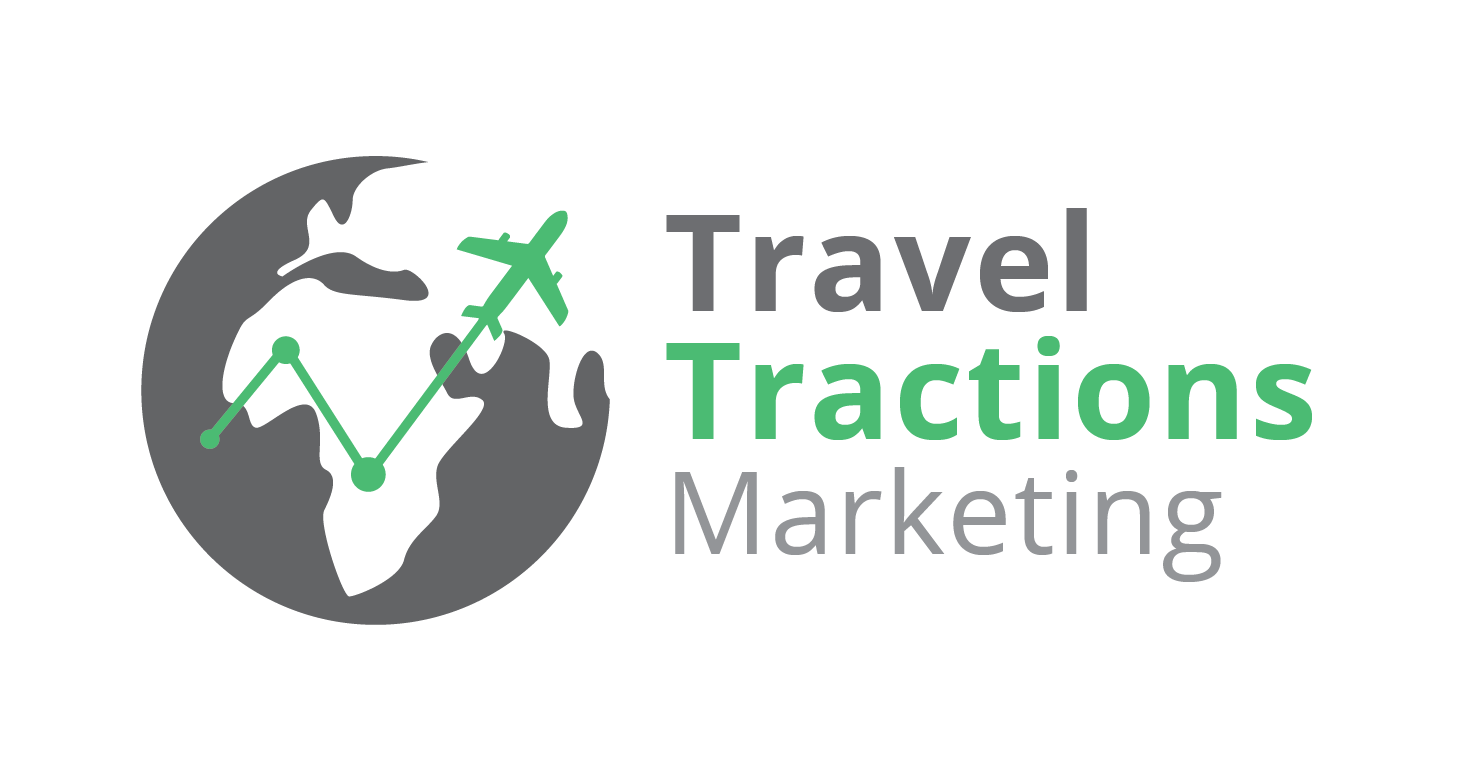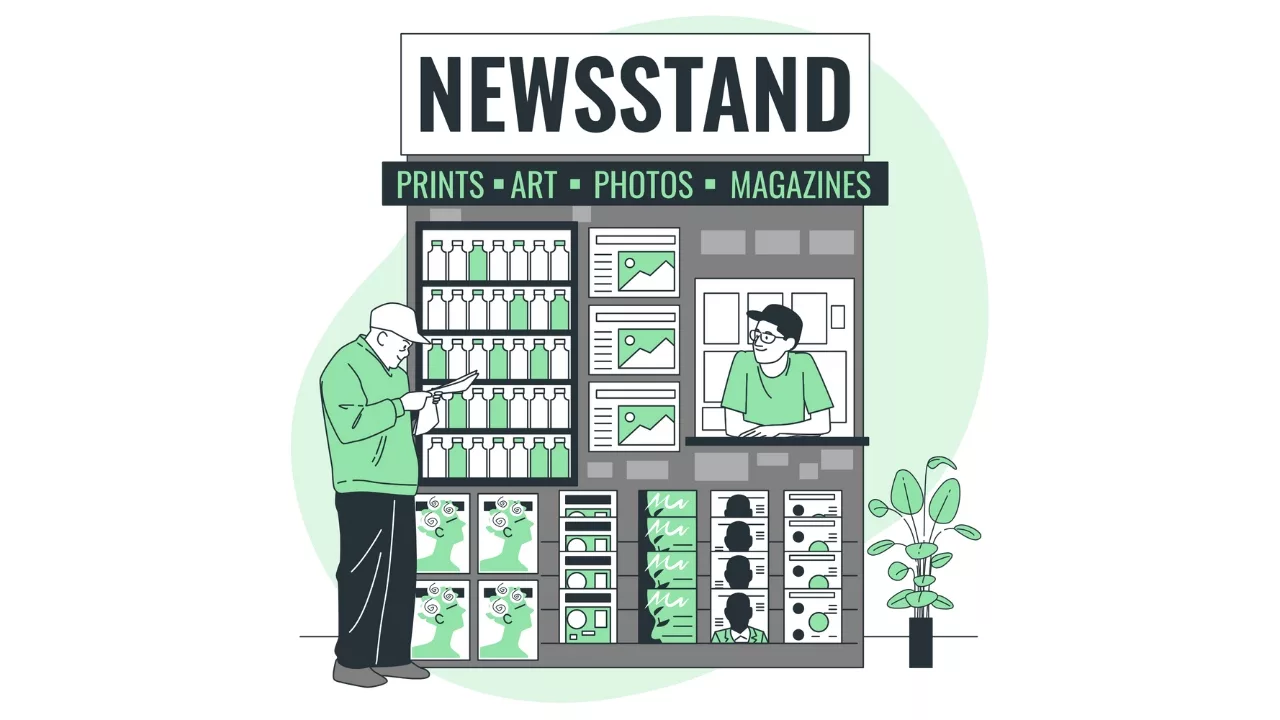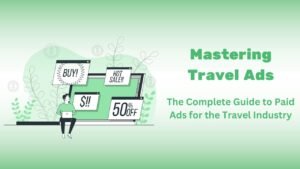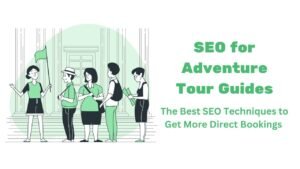
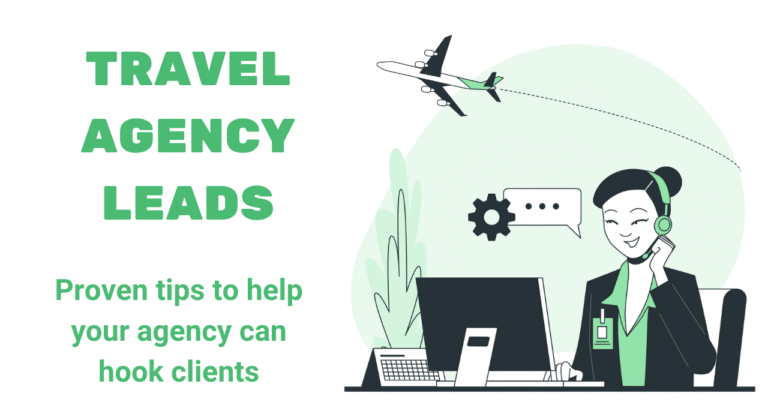
12 Top Strategies for Generating Travel Agency Leads Effectively
Whether a travel business succeeds or fails, a successful lead generation campaign can be the breaking point. Without leads, there is no revenue. Without revenue, there is no business. So, learning how to generate travel agency leads is one of the top skills to acquire early on.
Don’t worry. You’re not alone. Most travel agents have trouble with lead generation at least once in their careers. Sometimes, it’s tricky to hook potential customers with the usual tactics.
Here are a few updated and new ways for lead generation that your company can start implementing today.
How to Get Clients as a Travel Agent and Implement Lead Generation
These are the most effective ways to obtain more travel leads on and off-page. Many are easy and don’t require much money to do either. So, how do travel agents get clients? Let’s dive in!
1. Word of Mouth Marketing
It may seem odd to some, but it’s true that in this digital era, word of mouth remains king in lead generation. The reality is that having mega-celebrities, sports icons, and models promote your business will do nothing for you if you don’t have genuine reviews from people who look like them.
The best way to start receiving good feedback is by talking about your business yourself. No one knows you better than you. So, start your campaign in person at networking events and conferences. Do you still need more reach? Consider hosting workshops and webinars, or start posting on social media yourself.
Once you’ve hopped over that hurdle, you must maintain positive feedback. The best way is to give excellent customer service and, of course, great service. More often than not, satisfied customers will start promoting your business independently and hopefully create new leads.
2. Well-designed Website
You don’t need your website to rank highly for lead generation. But remember that without a well-designed website, all efforts to implement SEO and PPC will be useless. Your site needs to be user-friendly, have a good website design, and have high-quality content.
A well-designed website explicitly shows clients that you’re a professional and know what you’re doing before they’ve read anything on the page. It also helps majorly with brand recognition.
You should also have clear call to actions (CTAs) across important pages, which is critical to lead generations. Short phrases like ‘click here for a quick consultation’ and ‘join our newsletter’ are great ways to guide the user where you want them to go. It also makes the site easy to navigate and reduces bounce rates.
Tip: Don’t forget to optimise your site for different devices, as about 63% of website visitors use smartphones.
3. Search Engine Optimization (SEO)
Search engine optimisation is the process used to help your site or content rank at the top of Microsoft Bing, DuckDuckGo, or Google search results (among many others). But typically, many SEO agencies aim for Google search engine pages since it’s the most popular search engine.
This process is done by doing keyword research and writing high-quality blog posts, adding meta descriptions, link building, and guest posting, to name a few. You should see positive results once you have followed the correct steps and remain within Google’s criteria.
It can be tricky for beginners, so we suggest that you get the assistance of an SEO specialist to help you out. Let our team of experts assist you with our travel SEO services to help your travel agency rank on search engines.
4. Social Media Marketing
Social media is crucial for digital marketing. Each platform has its strengths, can be used for different types of content, and can help boost your visibility to various audiences. The best part? It’s free.
Instagram is perfect for capturing those memorable experiences on your travels, while Reddit is best for forum questions or suggestions. It’s best to take advantage of each platform’s strengths to better your chances of gaining leads. But you don’t have to use all platforms to do well.
Remember to keep your brand image at the forefront. This means keeping brand colours, images, and content consistent throughout all platforms. This cohesive look helps users identify your brand in an instant.
5. PPC Advertising and Paid Promotions
Yes, social media is a fantastic way to reach a broad audience. But, with the most recent updates, many users notice that their Facebook and Instagram rankings and reach have tanked.
Many digital managers are turning to paid promotions like Google Ads and tourism PPC campaigns to remedy this. These put your content ahead of your competitors and widen your reach for potential customers. This, in turn, gives you a better chance of converting.
However, many people experience a downside: it can quickly add up and become very costly to maintain. Once they stop using paid promos, there is a chance that their engagement will go down to what it was before.
6. Email Marketing
A good email marketing strategy remains many travel agencies’ secret weapon because it’s one of the best ways to get potential clients. This form of marketing sees you reaching out to clients via a curated email list and sending them promotional content, company updates, and newsletters.
There are two types of email marketing: inbound and outbound.
Inbound Email Marketing
Inbound email marketing refers to customers who have interacted with your site, whether through subscribing to your newsletter or simply being a customer. Even if these haven’t been converted yet, it shows you that these customers were once interested in your company and might do business in the future. It is an excellent way to build organic reach and trust amongst customers.
Outbound Email Marketing
As you can imagine, outbound email marketing refers to potential customers who haven’t signed up for your services yet. Think of it as cold calling but for emails. You can purchase this contact info from trusted sites. While it does have the potential to reach a wider audience, it can hinder your company’s reputation as it is an unsolicited method of contacting.
7. Blog Content Marketing
Blog marketing, or content marketing, is creating written content for your travel agency site. It often tries to answer customers’ questions, educate them, or inspire them to take action. For travel bloggers, this usually means booking a vacation or activity.
It also helps show website visitors that a group of people is behind the company, lending a human touch and authenticity. Successful blog marketing often goes hand in hand with SEO as it often uses keyword optimisation and the E-E-A-T guidelines as a base.
It can be a great way to show your authority on a subject, but it can also be time-consuming. The best way to tackle this tactic is to start with something simple and cross-promote it on your other channels, like social media and newsletters. From there, you can write more to build your portfolio as an expert.
Tip: Here are a few travel post ideas to give you some inspiration for your next blog post.
8. Referral Program
A referral program encourages users to share their business with friends and family through incentives, discounts, and special perks.
This marketing strategy is best advertised directly on travel businesses’ websites as banner displays, pop-ups, or on the footer. You can also share this lead-generation tactic on social media and through email.
The perks of using this tactic are that it is very cost-effective, offers better leads, and reaches a broader scope of customers.
9. Collaboration
Collaborating with people in your niche to help you build travel agent leads is an excellent way for both parties to win. By collaborating with bloggers in your niche, for example, you can access a new set of audiences within your scope.
People often prefer to do their own research and turn to travel agents. Yet, they want the info condensed into bite-sized bits for easy consumption. This is where travel bloggers come in. They often post easy-to-follow yet detailed guides on locations, trips, and activities, which readers enjoy.
Often, these bloggers will also have a group of readers who already trust their judgment. So, this is a great market to tap into. A common way to collaborate is by asking a blogger for a guest post about your business services in exchange for money, an experience, or a hotel stay.
Of course, how they are fairly compensated depends solely on your agreement with them.
10. Travel Events and Conferences
Like word of mouth, going to networking events to build in-person relationships is a great tactic. You are in a space with like-minded travel agents, so you can ask for advice on lead generation and build clientele simultaneously.
Can’t make it in person? Plenty of online spaces, webinars, and conferences you can join digitally. We’ve compiled a list of travel conferences you can attend to give your sales that extra push.
Tip: Don’t forget to print enough business cards to hand out at these events.
11. AI-powered Lead Generation
While the concept of using AI to help you generate leads is still relatively new, it has proven to help many companies attract potential travellers. With the help of AI, you can quickly repurpose engaging content for different platforms and use this to drive sales.
Through AI, your agency can also compile lists of potential leads based on specific criteria with increased accuracy that you can use in strategies like PPC or email marketing. AI also assists in analysing customer interactions to identify patterns and see which leads are most likely to convert.
This not only saves you time, but also helps your team focus on more promising prospects.
12. Lead Magnets
Lead magnets are free resources you offer users in hopes of having them return to your site for more. It should be clearly obtainable to visitors to help boost visibility and site engagement.
If done correctly, lead magnets are a great way to bring in customers consistently. The problem is that it’s time-consuming and can take a long time to see results. Good examples of lead magnets are e-books, free resources, studies, courses, and webinars.
A good lead magnet is a form of content that is:
- Relevant to your audience: Your content should speak to your audience somehow. It could be by empathising or by helping them in some way.
- Educational: Not all content needs to teach the user something, but providing content that helps them without being salesy is more important at the start.
- Valuable: Try to keep your content valuable in some way. This could be by offering discounts, insider tips, or entertainment, as a few examples.
- Shareable: The whole point of sharing content is for it to be shared again with a bigger audience. So, creating content that is worth sharing is very important.
- Trustworthy: There is a slim chance that consumers will convert if they do not trust you. So, building trust within your community is very important.
- Enticing: Giving just enough to hook visitors or at least make them curious about your site or product is good.
FAQs on How Your Travel Agency Can Generate High-quality Leads
Do you still have some unanswered questions about how to get leads for a travel agency? These detailed guidelines and answers should help your travel company get the boost it needs.
How to Get Leads for a Travel Agency
Lead generation for travel agencies is typically done through word of mouth, travel agent networking, social media, and referrals. Of course, combining digital marketing with techniques such as SEO, email campaigns, live chat, and targeted ads, with an experienced sales team, also helps to convince customers who have shown interest.
What Is the Fastest Way To Generate Travel Agency Leads?
The fastest way to get leads for travel agencies is to add clear calls-to-action (CTAs) to websites and social media pages. Having live chat features on your website 24/7 also helps clients in different time zones get their questions answered. It also helps to engage with potential travelers through personalised communication.
How To Generate Leads for Hotels?
Hotels must take a multi-faceted strategy that includes social media marketing, digital marketing, PPC, partnerships, and referral programs. Word of mouth is still a wonderful tool, so keeping abreast with reviews and engaging with present and past guests is a good way to maintain returning guests.
What Are Some Top Lead Generation Tools My Agency Can Use?
Travel agencies will benefit from lead generation tools like social media platforms, AI-powered live chats, and lead capture programmes like HubSpot, Jotform, and Zapier, which are outstanding examples. Online travel agency platforms like Expedia, Booking.com, and TripAdvisor are fantastic ways to showcase your business and expertise for a relatively low cost.
What are the Best Host Travel Agencies that Provide Leads?
Host travel agencies are businesses that affiliate with smaller travel agents to help them get qualified leads. With their detailed guidance, you stand a chance to improve your campaigns and drive sales. The top host agencies are Avoya Travel, Travel Planners International, Nexion Travel Group, and KHM Travel Group.
Final Thoughts on Lead Generation for Travel Agencies
In a bustling landscape like that of the travel industry, travel agencies must keep up to date and regularly build quality leads for potential customers. But how to find clients as a travel agent? There are a few ways to do this, from online to offline and paid to unpaid, to fit every business’s needs.
Out of all the methods, talking to clients and word of mouth still manage to trump them all. This is because it shows social proof and feels less salesy. That said, there are still many other tactics to tap into how to market yourself as a travel agent. Which ones are you trying?
P.S.: This info is invaluable, but you don’t have to do it alone! Book a consulting call with one of our experts to help you.

